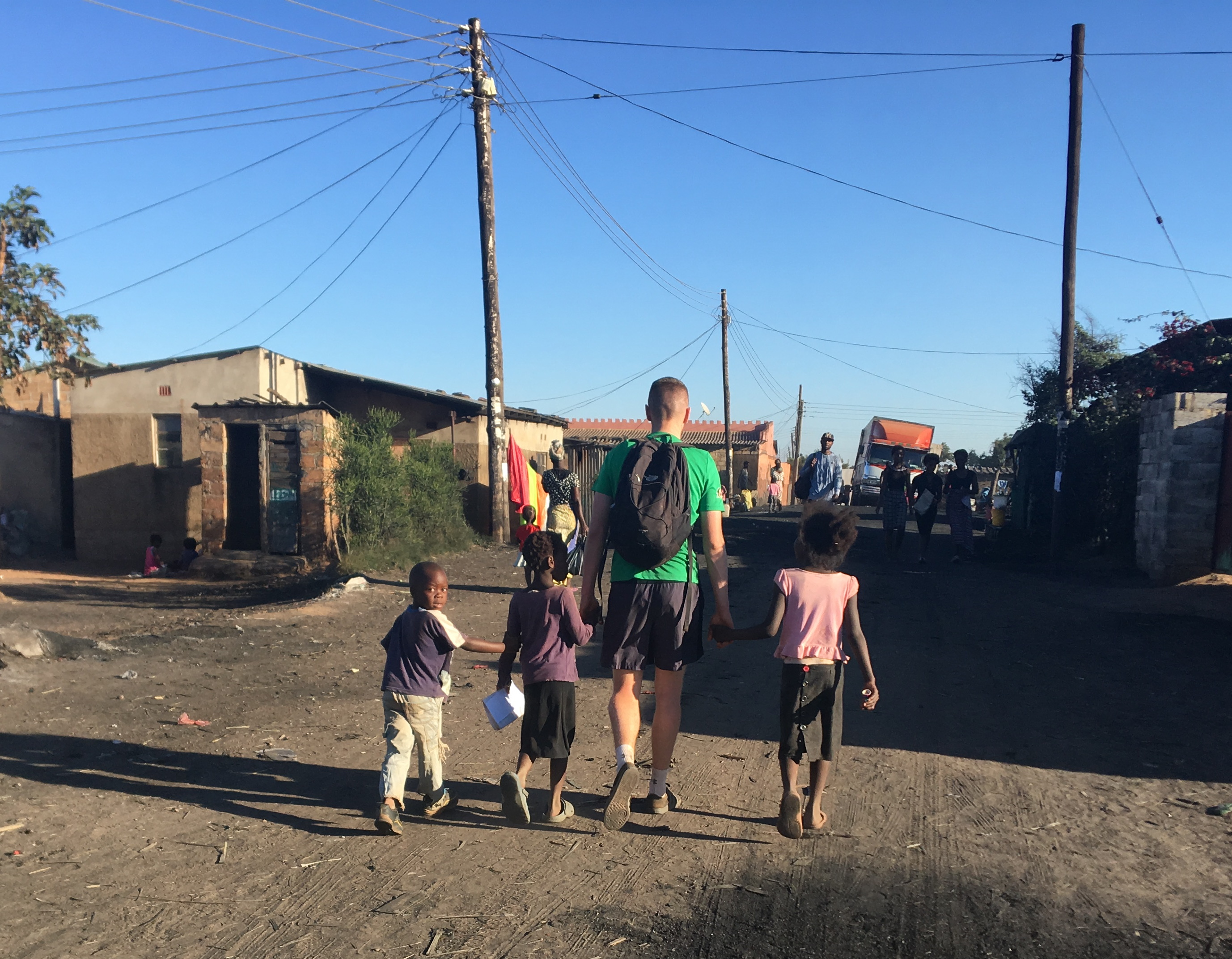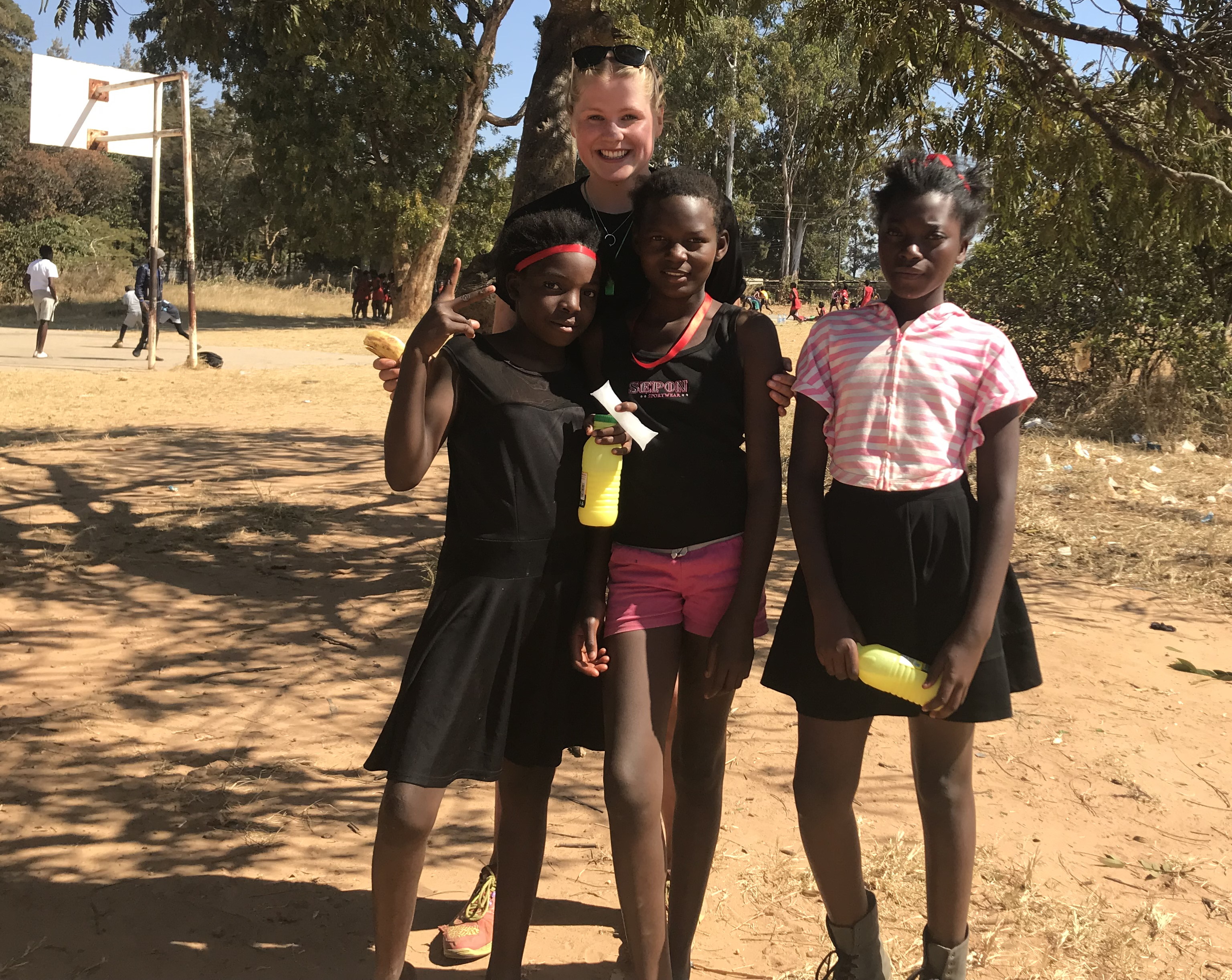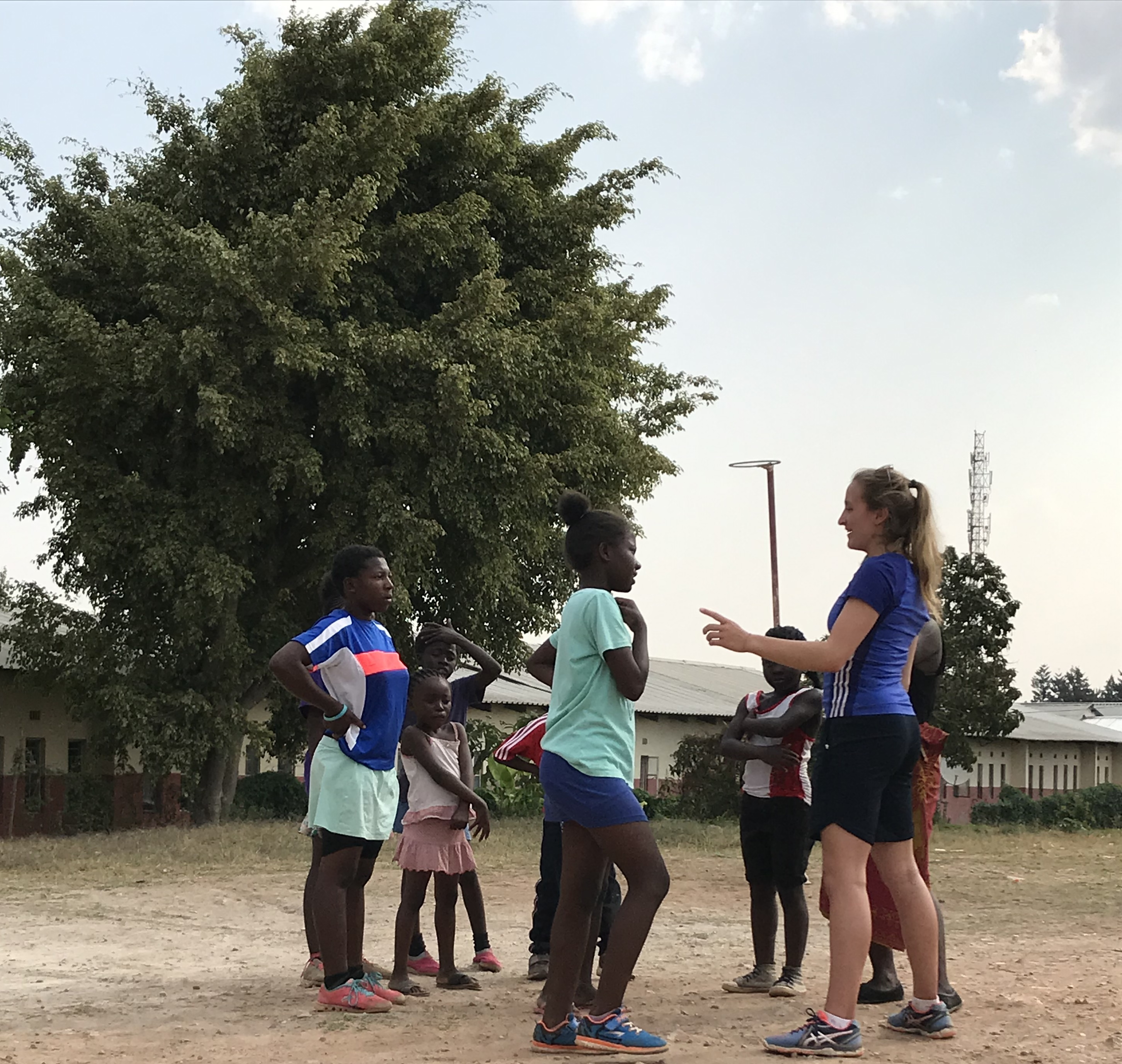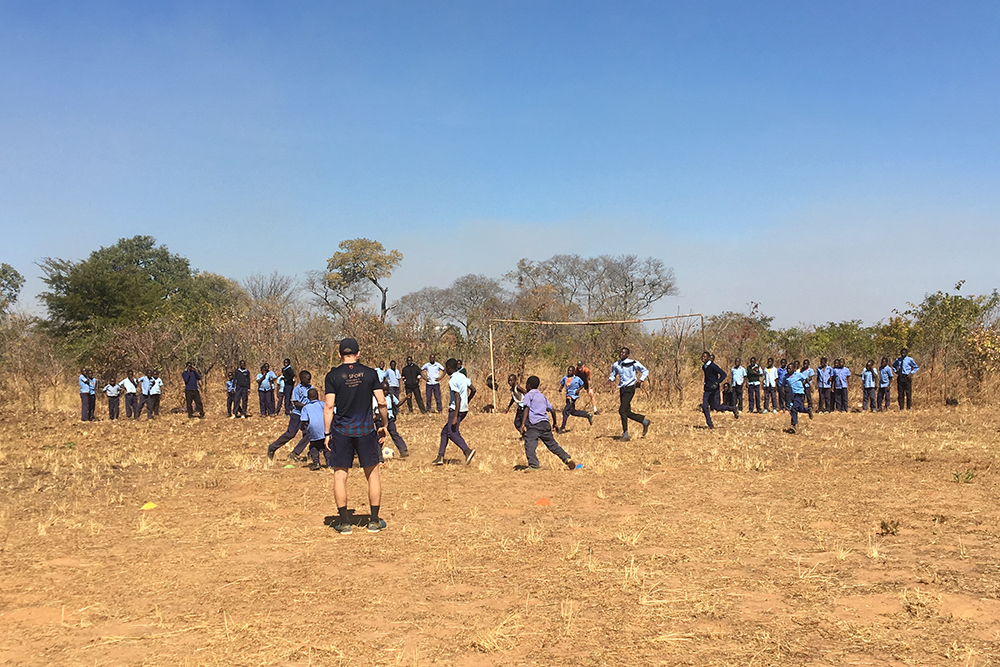
2019 Group 1 Blog: Week 6
Once you get into the swing of things out here, time starts to move very quickly. As the staff member (from the University of Edinburgh) I arrived on the Wednesday of week 5, and after a bit of a settling in period and the warmest of welcomes from the group, week 6 has disappeared before my eyes – but what a week it was!
Monday was a truly unique experience, as we headed out to Chongwe to experience a day of rural placement, where the St Andrews staff and students, plus Zoe (Cardiff Met) will be heading at the end of week 6 for 10 days. Chongwe is approximately 30 miles East of Lusaka and has a real community feel to it. The Headteacher took the full group into her office and gave us an incredibly warm welcome. We were then given a bit of a free reign to play games and sports with the full school – except for the Grade 9 students who were being assessed. The students thoroughly enjoyed the novelty of rural, a different facility, and meeting other children. From my point-of-view, it was great to be able to experience rural so that we, as a university, can better market the opportunity to students in future years.
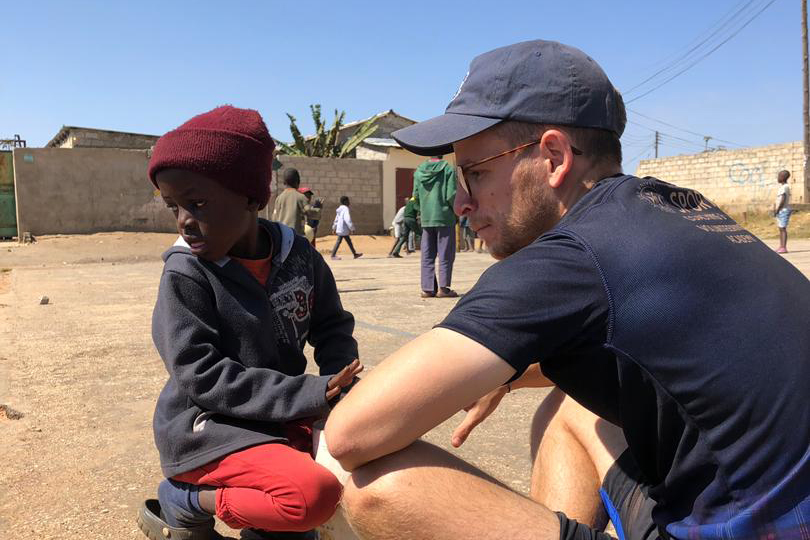
To have the opportunity to witness the handover between groups was something that I was incredibly excited about, so from Tuesday – Friday I made it my mission to tick off every possible site that I was yet to visit. I remember the endless questions I had on arrival, so wanted to ensure that I had at least experienced each site to give the students some sort of insight / advice prior to the start of their placements.
Kabwata was first up, so I went along with Cara (Stirling) and Charlotte (Edinburgh) to watch, and support, their basketball delivery. Kabwata is a brilliant site, and I really got the impression that Katambi, Agnes and Isaac (football) are doing a fantastic job – their passion, organisation and care for the children was clear to see from the off. The facilities, in comparison to others that we deliver at, are great and the balance between students and peer leaders in terms of delivery and learning seemed to work brilliantly. One of the real challenges of the project is ensuring that students are matched up with appropriate peer leaders so that there is mutual learning, and maximum impact.
Wednesday was spent at M’tendere, an area close to the house so I didn’t get the chance to enjoy (or brave) an early morning bus journey. In the morning, I supported Rachel (St Andrews) with her teaching placement – without as much of a name check I was in the classroom delivering a session on verbs. Rachel was exceptional in her delivery and control of a class consisting of 60 students. The lackadaisical attitude of the school’s senior staff was staggering – we were taking the Headteacher’s class, who instead of seeing a learning opportunity, seemed to use Rachel’s presence to take a break from duties. It’s not ideal, as Rachel’s delivery has no long-term impact on key individuals, or the school. Rachel was hyper-aware of this, however, and ensured she raised the concerns appropriately prior to her departure.
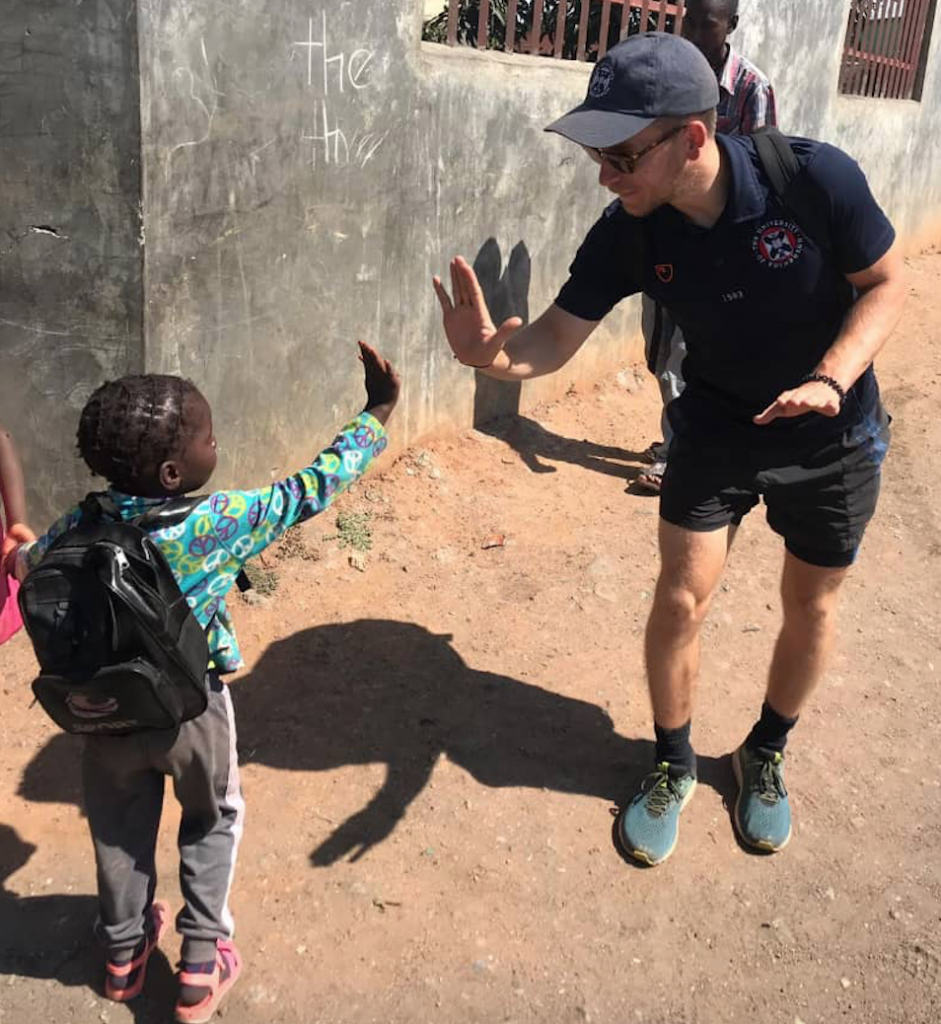
In the afternoon, I went along with Charlotte (Loughborough) to witness the M’tendere set-up. Much like Kabwata, it was thoroughly impressive with various teams running sessions, and a plethora of coaches present – it was great to speak to AJ and Sam about the football offering, their passion to develop their team’s skills and abilities, not only in football but for life in general, was inspiring. The relationship with Charlotte and them both also seemed to function seamlessly.
Another important experience for myself was to witness the end of placement review meeting and build a better understanding of the key successes and challenges of the project that happen at ground level. I think the meeting went well, even just as a platform for the students to present their views to Sport in Action and the peer leaders. However, despite never having attended an end of placement meeting before, a real sense of deja vu lingered. It felt very much that the issues discussed would have been brought up in this setting before, with the group, or the project, being no closer to a resolution or a way forward. The high turnover of key individuals, whether students or peer leaders, means that solving long-term issues can be a real challenge, but one that must be addressed to increase the impact, and improve the sustainability, of the brilliant work that is taking place.
I finished my week off strongly – attending Hub site tournaments at Chipata (Thursday afternoon) and Kalingalinga (Friday afternoon). These hubs are fantastic initiatives, and very much remind me of the Community Sport Hub model back in Scotland, with no hub being the same, but with a common aim bringing them together. Both Chipata and Kalingalinga are exceptional sites at the heart of their communities. Over the two tournaments, 7 schools and over 120 girls (many of whom have only taken up the sport in recent weeks and months) had the chance to play competitive netball. Ellie (St Andrews) and Erin (Cardiff Met) with the support of Bright (Kalingalinga) and Miriam & Beauty (Chipata) ran two brilliant events that will send netball shaped waves through their respective communities. To witness the impact netball can have on the life of these girls is something that I will never forget, and I am not sure that there are many better tools to engage, inspire and develop young woman here in Zambia.
Over the past 12-18 months, I have been working on this project from a University of Edinburgh point of view. It’s safe to say that I have learnt more in the past 10 days spent in Lusaka than any time expended reading documents or attending meetings on the project back in the UK. I cannot wait to see what the next 10 days have in store, before it’s time to head back to the UK full of ideas on how we can maximise our impact on the project in the future. For now, it’s over and out from group one.
Michael Webster (Staff member, University of Edinburgh)

